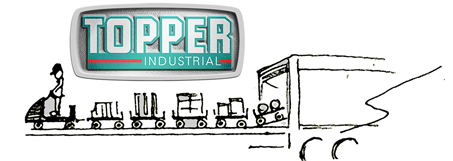In the fast-paced pick and pack world of ecommerce, 90 percent of the items selected are smaller than a loaf of bread. So, when this is the size of the parts picked, product line carts are less needed and automated goods-to-person delivery systems are ideal.
Carriers such as UPS and FedEx plan for the peak holiday shipping season all year and with the experience of several years of growing online purchases, there is a good understanding of the issues and costs which arise in handling these peak volumes. To offset these holiday surcharges, pricing will add a 27-cent charge on all ground packages sent to homes between November and December. Nowhere is that increase more painful than large package surcharges. These may increase during this period, with an additional $24 fee added to an existing surcharge of $70 for a package weighing more than 150 pounds and over a certain size. Additionally, as a peak surcharge of $249 per package on the largest packages; this is on top of a $150 fee for such “overmax” packages (more than 150 pounds, or that exceed 108 inches in length or a total of 165 in length and girth combined).
Ouch! Not all those premium fees can be passed on to the customer, which means fulfillment and distribution centers (DCs) must drive more efficiencies throughout the year to capture cost-recovery. Although FedEx is not applying peak surcharges to typical small package holiday deliveries, they too have instituted surcharges for oversized packages. Of course, there are other carriers that handle ecommerce deliveries, including the U.S. Postal Service as well as regional package delivery companies. All will impose super charges.
Topper Industrial carts reduce the Amazon impact to distribution centers and 3PLs serving other ecommerce leaders. As the pioneer in the North American Fork Truck Free movement, Topper Industrial brings the industrial manufacturing application to DCs. Amazon picked, packed, and shipped approximately 5 billion items to U.S. consumers in 2017; more than 150 items every second. To support that volume, Amazon has built a network of fulfillment centers, sortation centers, and cross-dock facilities all designed to speed the efficient flow of merchandise around their system.
Cart delivery to shipping docks with large items, from mattresses to tires, from washing machines to stair climbing exercise equipment simply makes sense. Minimizing health and safety risks has been magnificently addressed on the manufacturing plant floor; taking those same principles and lessons learned into the DC is vital. It does not address last mile delivery issues; it does suggest a lean, efficient, and effective way to move cumbersome products from inventory to the dock to the truck.
By 2020, about 65 percent of the U.S. population will live within 50 miles of a full-scale Amazon fulfillment center. For the toothpaste, laundry detergent, and other single pick items, small in size, it is a simple calculation. For the large oversized items the same material flow calculation in manufacturing applies in order fulfillment of big ticket items (not necessarily price, but size).
About Topper Industrial
For more than twenty years, Topper Industrial, (www.topperindustrial.com) based just outside of Milwaukee, WI, has been a leader in the material handling equipment industry. The company’s product roster features industrial carts, conveyors, lifts, lifts & tilts, shipping racks, containers, casters, and cart components. From mother-daughter carts to quad steer carts to tilt carts and rotate carts, Topper’s material handling solutions make delivering material line side more effective through more efficient practices. Topper Industrial has a team of experienced professional experts able to assess and provide the right product for all material handling equipment requirements.
Topper Industrial is a proud member of MHI. Follow on Twitter @TopperInd or on LinkedIn.

